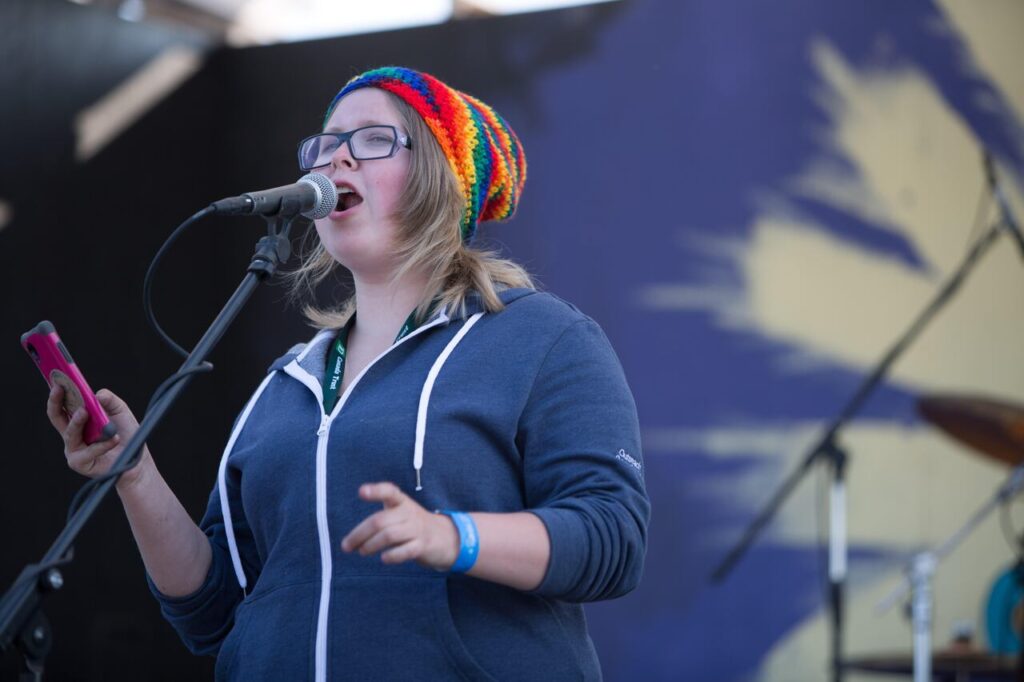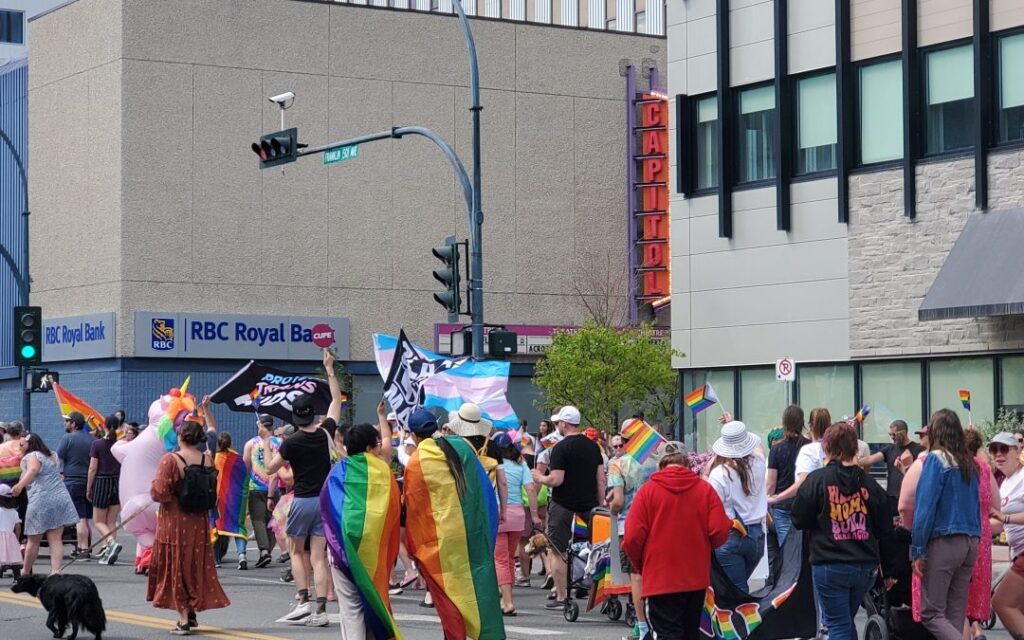By Jacq Brasseur

Jacq Brasseur (they/them) was born and raised in Yellowknife, and now shares their time between the North and the Canadian Prairies. They are the co-founder of the Northern Mosaic Network, and are actively engaged in a wide range of advocacy and community initiatives across the country. When Jacq isn’t doing community work, they are running Ivy + Dean Consulting, a consulting firm that supports non-profit organizations with equity-informed approaches to governance and leadership. You can get in touch with them online at @jacqbrasseur or @ivydeanworks.
The Act of Walking as Justice

People have been referring to me as an activist for longer than I can remember. I had my first foray into community advocacy and activism when I was in my late teens, getting involved in a now-dissolved organization called V-Day North. This group worked to address gender-based violence through arts-based advocacy, and I got involved because of my interest in theatre — we used to stage The Vagina Monologues annually from around 2010 to 20141. My involvement in V-Day North is what led me to participating in one of my first marches.
The march was Yellowknife Slut Walk in 2011, organized to decry blaming, shaming, and disbelieving survivors of sexual assault. Shortly after I attended this march, I ended up working with the Status of Women Council in Yellowknife as a practicum student where I co-organized the Take Back the Night march in 2012, another march that protests violence against women and other gender minorities.
As my advocacy work pivoted from gender equality and anti-violence work to queer and trans rights, my marching only increased — after all, Pride marches are an annual occurrence for any self-respecting queer activist. Since my early twenties, I’ve probably participated in over three dozen marches, rallies, or walks tied to a wide range of causes from gender equity, Indigenous solidarity, queer issues, and anti-poverty initiatives.
In this way, I’ve always made connections between walking and social justice. Activists use marches as a tactic to show the strength in numbers, to get people out into the streets and to connect with one another offline. I’ve moved between Yellowknife, and southern Canada, and each time I find myself in a new community, getting out into the streets and joining a rally still feels like a rite of passage for me. With every step down a main street and every chant that demands liberation, I feel part of something bigger than me.

Organizing and showing up for rallies and marches is one important way of staying engaged in a community. I think of the hundreds of high school students who walked out of their classrooms every Friday to protest inaction on climate change, or when Tristen Durocher walked over 600 kms from his town in Northern Saskatchewan to the Legislative Assembly in Regina to convince the provincial government to adopt a suicide prevention bill.
But sometimes, at the march, I’ve looked around, quietly taking stock of who is there and who isn’t. I’m embarrassed to say that I’ve used this to make moral judgments about who is or isn’t as committed to justice as I am. Maybe you’ve done something similar.
Challenging my tendency to make these judgments has allowed me to develop more complex perspectives on what it means to walk for justice. It’s helped me see that there are many people who don’t have time in their days to march for a political cause whose walks still contribute meaningfully to their communities.
I think about the very early morning drives I’ve taken in Yellowknife as I’ve witnessed groups of friends, some of whom may be unhoused, laughing, as they’re walking together in safety to a local warming shelter. I think about the single parent who walks to and from work every day, no matter how cold, because they can’t afford a car and need to financially support their children. I think about the teenage girl who spots one of her drunk classmates leaving the party alone, and puts on her sneakers to accompany her on the walk home, knowing that she’ll be safer if she’s with someone else.
These people are walking for the same reason as I was during all of those marches: to care for their communities and the people in them, often because the systems that allegedly exist to protect us fail—government budgets don’t properly address housing, greedy corporations would rather pay minimum wage than a living wage, and more policing doesn’t lead to reduced violence. While activists may be walking in marches to protest these types of inequity, others are walking to care for the people these inequities leave behind. These people are walking every day for justice, without their walks being witnessed by a news agency or captured on social media with a trending hashtag.
We admire the activists in our towns and cities who are marching loudly during the protests and rallies; we celebrate their walks as meaningful political engagement. But let us remember that all of us pursue justice in our own ways, whether we realize it or not, often one step at a time.
- I’m sure somebody who was in the community with me will correct these dates if my memory serves me wrong… ↩︎